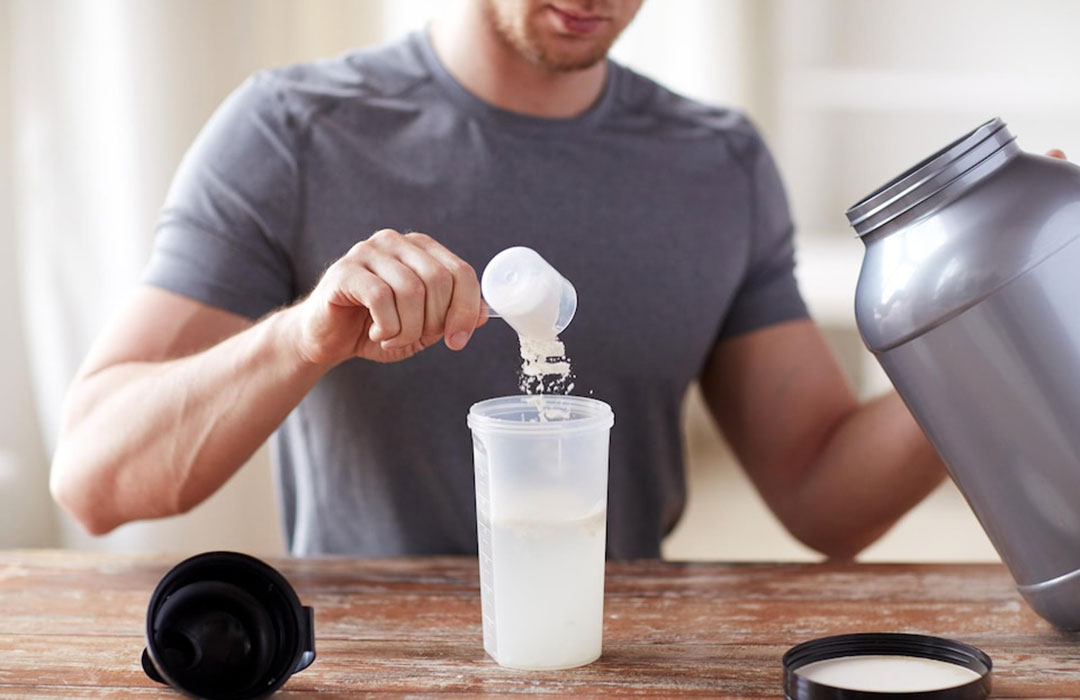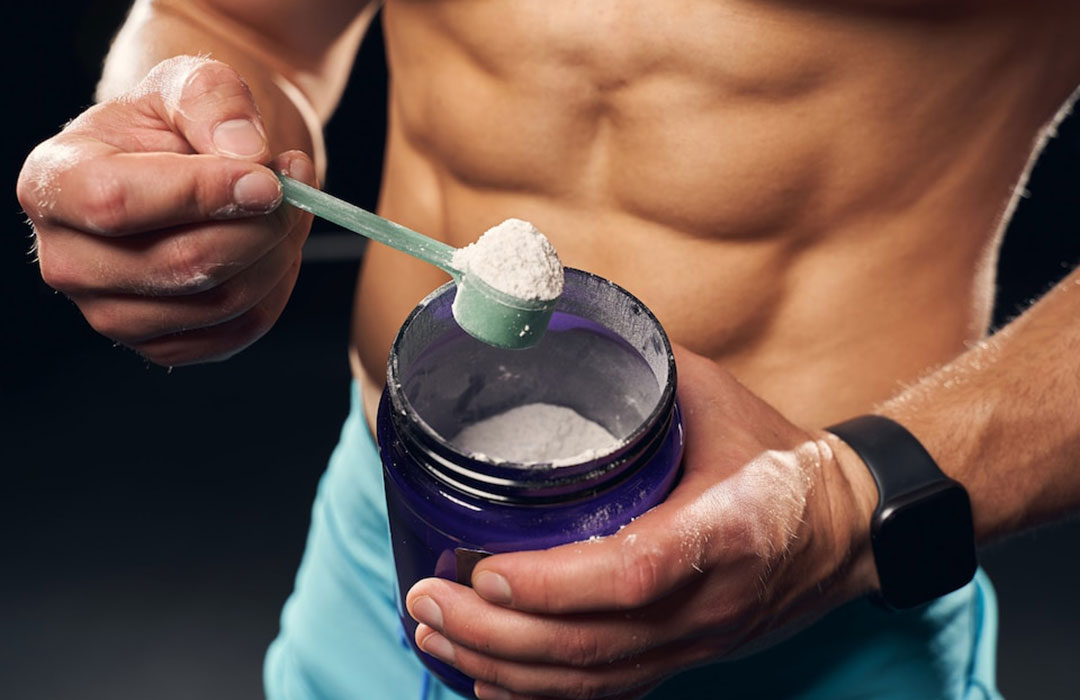Introduction
How Long Does Creatine Stay in Your System?
Are you contemplating the inclusion of creatine in your fitness routine? If that’s the case, you might be curious about the duration for which it remains detectable in your body. This comprehensive article will investigate creatine and its time in the human body. Now, let’s delve into the different aspects of using creatine and its elimination from the body.
Understanding Creatine: An Overview
Creatine is a naturally occurring compound in the human body, primarily in the muscles. It plays a vital role in energy production during high-intensity exercise and is often used as a supplement to enhance athletic performance and muscle mass. But before we delve into the duration of creatine in your system, let’s explore how it works.
How Does Creatine Work in the Body?
Creatine plays a crucial role in the body as an energy storage compound. When consumed, creatine is converted into phosphocreatine, a readily available source for regenerating adenosine triphosphate (ATP). ATP is the primary energy currency of cells and is essential for muscle contractions during physical activities. By increasing the availability of ATP, creatine supplementation enhances muscle performance, particularly in short-duration, high-intensity exercises like weightlifting or sprinting.
ATP can be produced in three ways: through phosphocreatine breakdown, anaerobic glycolysis, and aerobic respiration. Phosphocreatine breakdown, facilitated by creatine, is the fastest method to regenerate ATP. During intense exercise, the demand for ATP exceeds the rate at which it can be produced through aerobic respiration alone. Phosphocreatine rapidly replenishes ATP levels, allowing muscles to sustain their energy output for short bursts of activity.
The second pathway, anaerobic glycolysis, occurs with a limited oxygen supply. It involves the breakdown of glucose into pyruvate, resulting in the production of ATP and lactate. While this process is less efficient in generating ATP than aerobic respiration, it provides a rapid energy source during high-intensity activities when oxygen availability is limited.
Finally, aerobic respiration, the most efficient method of ATP production, occurs in the presence of oxygen. It involves the breakdown of glucose or fatty acids to generate ATP, providing sustained energy for prolonged activities. This process is essential for endurance exercises, where oxygen supply is plentiful, and muscles can meet their power demands more efficiently.
In summary, creatine’s conversion into phosphocreatine facilitates the rapid regeneration of ATP, the primary energy source for muscle contractions. By increasing ATP availability, creatine supplementation enhances muscle performance during short, intense activities. ATP production can occur through phosphocreatine breakdown, anaerobic glycolysis, and aerobic respiration, each serving as a vital pathway for energy production in the body.
How much creatine should I take per day?
The recommended daily dosage of creatine varies depending on individual factors and specific goals. However, a common approach is to follow a loading phase of 20 grams per day for the first 5-7 days, divided into 4-5 equal doses. After the loading phase, a maintenance dose of 3-5 grams per day is typically suggested. It’s important to note that individual responses to creatine may vary, and it’s advisable to consult with a healthcare professional or a qualified sports nutritionist to determine the appropriate dosage based on your specific needs, body weight, and exercise regimen. Additionally, ensuring proper hydration while taking creatine is essential for optimal results.
Absorption and Distribution of Creatine
Once consumed, creatine is absorbed by the intestines and enters the bloodstream. From there, it is transported to the muscles and stored as phosphocreatine. Muscle mass, diet, and overall health influence creatine distribution.
Metabolism of Creatine
Creatine is primarily metabolized in the liver and converted into creatinine. Creatinine is a waste product filtered out of the blood by the kidneys and excreted in the urine. The rate of creatinine formation and excretion is relatively stable in healthy individuals.
Factors Influencing Creatine Retention
The retention of creatine in your system is influenced by several key factors, which can affect the extent and duration of its presence. Here’s a closer look at these factors:
1. Kidney Function: The kidneys are crucial in filtering and excreting waste products from the body, including creatine. Individuals with impaired kidney function may experience longer retention of creatine, potentially leading to elevated levels in the bloodstream. For individuals with kidney issues, it is advisable to avoid creatine supplementation or seek medical advice before use.
2. Type of Creatine Supplementation: There are various forms of creatine available in the market, such as creatine monohydrate, creatine ethyl ester, and creatine hydrochloride. The type of creatine you choose can impact its retention and absorption in your body. Creatine monohydrate is the most researched and commonly used form, known for its effectiveness and high absorption rate.
3. Gender: Studies have shown that gender can influence creatine retention. Males tend to have higher natural creatine levels than females due to differences in muscle mass and hormone profiles. As a result, the baseline creatine levels may vary between genders, affecting how much creatine is retained with supplementation.
4. Muscle Mass: The amount of muscle mass you possess can also influence creatine retention. Individuals with higher muscle mass have a greater capacity to store creatine, leading to potentially longer retention periods. On the other hand, those with lower muscle mass may reach saturation faster and experience shorter retention.
5. Genetic Variations: Genetic factors can affect how your body processes and retains creatine. Certain gene variations may affect creatine transporter proteins, impacting creatine uptake in muscle cells and overall retention.
6. Exercise Intensity and Frequency: Regular physical activity, especially high-intensity exercises like weight lifting or sprinting, can enhance creatine uptake and retention. When muscles are actively used, the demand for stored energy increases, leading to a more significant uptake of creatine.
7. Loading Phase: Some individuals choose to undergo a “loading phase” when starting creatine supplementation, where they take higher doses for a few days to saturate their muscles quickly. The loading phase can impact creatine retention by initially increasing muscle stores, but it’s unnecessary for everyone and can be skipped without diminishing the benefits of creatine supplementation.
By considering these factors, you can better understand how creatine is retained in your body and make informed decisions about your supplementation strategy. Always follow recommended dosages and consult a healthcare professional before starting any new supplement regimen, especially if you have pre-existing health conditions.
What Affects Creatine Retention?
When considering the duration that creatine stays in your system, it’s essential to understand the factors that influence its retention. Creatine is a popular supplement known for its performance-enhancing effects, particularly in the realms of sports and fitness. However, the amount of time creatine remains in your system can vary based on several key factors:
1. Dosage: The amount of creatine you consume directly affects how long it remains in your body. Taking a higher dose can lead to an initial increase in creatine levels in your muscles. However, this doesn’t necessarily mean that the effects will last longer. Once your muscles are fully saturated with creatine, any excess will be excreted from your system.
2. Duration of Use: The length of time you take creatine supplements can impact their retention. Short-term use, typically within a few weeks, may result in faster creatine clearance from your body once supplementation is discontinued. On the other hand, long-term use might lead to a more gradual decline in creatine levels after cessation.
3. Individual Metabolism: Each person’s metabolism is unique, which can influence how quickly your body processes creatine. Some individuals may have a faster metabolism, leading to a more rapid clearance of creatine from their system, while others might have a slower metabolism, prolonging its retention.
4. Hydration Status: Your body’s hydration level is vital to creatine retention. When adequately hydrated, creatine is more efficiently absorbed into your muscles, maximizing its potential benefits. Conversely, dehydration may hinder creatine uptake and utilization, affecting how long it stays in your system.
5. Exercise Routine: Regular physical activity can impact creatine retention. Engaging in intense exercise, especially activities that promote muscle growth and stored energy utilization, may enhance the uptake and utilization of creatine in your muscles, potentially extending its presence in your system.
6. Diet and Nutrition: The composition of your diet can also influence creatine retention. Consuming creatine with carbohydrates or a meal high in protein can enhance its uptake into muscle cells. Additionally, certain dietary factors, like high levels of caffeine, may interfere with creatine retention.
It’s important to note that, on average, creatine remains detectable in the body for about 2 to 3 weeks after discontinuing supplementation. However, depending on various factors, its performance-enhancing effects may diminish after a few days or weeks.
Understanding these factors can help you make informed decisions about creatine supplementation and its potential impact on your athletic performance or fitness goals. If you’re considering using creatine, consulting with a healthcare professional or a qualified nutritionist can provide personalized guidance based on your specific needs and circumstances.
How Long Does Creatine Stay in Your System?
The time that creatine stays in your system can vary based on several factors. On average, creatine can be detected in urine for approximately 24 to 48 hours following the last dose. It’s crucial to understand that this time frame is a general estimate and can differ from individual to individual. Several variables can influence the clearance rate of creatine, including factors such as body composition, metabolism, hydration levels, and dosage. Additionally, the sensitivity of the testing method can also impact creatine’s detectability. Therefore, it is essential to consider these factors and consult with a healthcare professional or refer to specific guidelines to understand better how long creatine may remain detectable in your system for a particular circumstance.
Benefits and Drawbacks of Creatine Usage
Creatine supplementation offers several benefits for athletes and fitness enthusiasts. Extensive research has demonstrated that creatine supplementation can enhance muscle strength, power, and overall exercise performance. Moreover, creatine may be therapeutic in specific medical conditions, including neurodegenerative disorders.
Nevertheless, like any other supplement, creatine has potential drawbacks. Specific individuals may encounter gastrointestinal discomfort, muscle cramps, or water retention as side effects. It is of utmost importance to seek guidance from a healthcare professional before initiating any supplementation regimen.
Do I need to take creatine forever?
There is no requirement to take creatine forever, and the decision to continue supplementation should be based on personal preference and individual goals. Creatine supplementation is commonly used in cycles, where individuals go through phases of taking creatine followed by periods of not taking it. This approach allows the body to maintain its natural creatine levels while benefiting from the ergogenic effects during the supplementation phase.
Some individuals may incorporate creatine as a long-term supplement, especially if they engage in regular high-intensity training or sports activities. A lower maintenance dose of 3-5 grams daily can be considered in such cases. However, it is crucial to monitor your body’s response and consult with a healthcare professional to ensure it aligns with your specific needs and any pre-existing medical conditions.
Ultimately, whether to continue taking creatine indefinitely or in cycles depends on personal goals, training routines, and individual responses to supplementation. Regular breaks from creatine supplementation can help assess its effects on performance and determine if it continues to benefit your specific circumstances.
Frequently Asked Questions (FAQs)
-
How do you get creatine out of your system?
Creatine naturally flushes out of your system over time through urine and sweat. Staying hydrated and discontinuing creatine supplementation allows your body to eliminate it gradually.
-
What happens if you stop creatine for 2 days?
There should be no immediate adverse effects if you stop taking creatine for two days. Your body’s creatine levels may slightly decrease, but it won’t significantly impact your performance or muscle gains.
-
What happens when you stop creatine?
When you stop taking creatine, your body’s creatine stores gradually deplete. Your strength and endurance may decrease slightly, but any muscle mass gained during supplementation should be maintained if you exercise and follow a balanced diet.
-
Is creatine effects permanent?
The effects of creatine are not permanent. When you discontinue creatine supplementation, your body’s creatine levels return to their baseline. However, any strength and muscle gains achieved while using creatine can be maintained with proper training and nutrition.
-
Will I lose muscle if I stop taking creatine?
If you stop taking creatine, you may experience a slight decrease in muscle size due to the loss of water retention caused by creatine supplementation. However, with proper training and nutrition, you can continue to build and maintain muscle mass even without creatine.
-
Is it safe to take creatine without working out?
It is generally safe to take creatine without working out. Creatine is a naturally occurring compound found in the body and various foods. However, it is always advisable to consult with a healthcare professional before starting any new supplementation regimen, especially if you have any pre-existing medical conditions.
Conclusion
In conclusion, creatine is a widely used supplement that can enhance athletic performance and muscle mass. The duration of creatine in your system can range from 24 to 48 hours, depending on various factors. While creatine offers numerous benefits, it is essential to use it responsibly and consult with a healthcare professional before starting any supplementation regimen.
Remember, proper hydration and adherence to recommended dosages are crucial when using creatine. By understanding how creatine works and its duration in the body, you can make informed decisions about incorporating it into your fitness routine.




